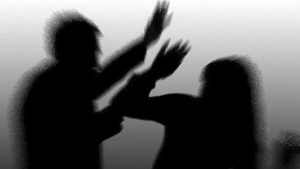About Covid-19
INFORMATION FROM THE WORLD HEALTH ORGANISATION. What is a coronavirus? Coronaviruses are a large family of viruses which may cause illness in animals or humans. In humans, several coronaviruses are known to cause respiratory infections ranging from the common cold to more severe diseases such as Middle East Respiratory Syndrome (MERS) and Severe […]
INFORMATION FROM THE WORLD HEALTH ORGANISATION.

Coronaviruses are a large family of viruses which may cause illness in animals or humans. In humans, several coronaviruses are known to cause respiratory infections ranging from the common cold to more severe diseases such as Middle East Respiratory Syndrome (MERS) and Severe Acute Respiratory Syndrome (SARS). The most recently discovered coronavirus causes coronavirus disease COVID-19.
COVID-19 is the infectious disease caused by the most recently discovered coronavirus. This new virus and disease were unknown before the outbreak began in Wuhan, China, in December 2019. COVID-19 is now a pandemic affecting many countries globally.
What are the symptoms of COVID-19?
The most common symptoms of COVID-19 are fever, dry cough, and tiredness. Some patients may have aches and pains, nasal congestion, sore throat or diarrhea. These symptoms are usually mild and begin gradually. Some people become infected but only have very mild symptoms. Most people (about 80%) recover from the disease without needing hospital treatment. Around 1 out of every 5 people who gets COVID-19 becomes seriously ill and develops difficulty breathing. Older people, and those with underlying medical problems like high blood pressure, heart and lung problems, diabetes, or cancer, are at higher risk of developing serious illness. However, anyone can catch COVID-19 and become seriously ill. Even people with very mild symptoms of COVID-19 can transmit the virus. People of all ages who experience fever, cough and difficulty breathing should seek medical attention.
What should I do if I have COVID-19 symptoms and when should I seek medical care?
If you have minor symptoms, such as a slight cough or a mild fever, there is generally no need to seek medical care. Stay at home, self-isolate and monitor your symptoms. Follow national guidance on self-isolation.
However, if you live in an area with malaria or dengue fever it is important that you do not ignore symptoms of fever. Seek medical help. When you attend the health facility wear a mask if possible, keep at least 1 metre distance from other people and do not touch surfaces with your hands. If it is a child who is sick help the child stick to this advice.
Seek immediate medical care if you have difficulty breathing or pain/pressure in the chest. If possible, call your health care provider in advance, so he/she can direct you to the right health facility.
People can catch COVID-19 from others who have the virus. The disease spreads primarily from person to person through small droplets from the nose or mouth, which are expelled when a person with COVID-19 coughs, sneezes, or speaks. These droplets are relatively heavy, do not travel far and quickly sink to the ground. People can catch COVID-19 if they breathe in these droplets from a person infected with the virus. Therefore it is important to stay at least 1 metre (3 feet) away from others. These droplets can land on objects and surfaces around the person such as tables, doorknobs and handrails. People can become infected by touching these objects or surfaces, then touching their eyes, nose or mouth. This is why it is important to wash your hands regularly with soap and water or clean with alcohol-based hand rub.
WHO is assessing ongoing research on the ways that COVID-19 is spread and will continue to share updated findings?
How can we protect others and ourselves if we don’t know who is infected?
Practicing hand and respiratory hygiene is important at all times and is the best way to protect others and yourself. When possible maintain at least a 1 metre (3 feet) distance between yourself and others. This is especially important if you are standing by someone who is coughing or sneezing. Since some infected persons may not yet be exhibiting symptoms or their symptoms may be mild, maintaining a physical distance with everyone is a good idea if you are in an area where COVID-19 is circulating.
What does it mean to self-isolate?
Self-isolation is an important measure taken by those who have COVID-19 symptoms to avoid infecting others in the community, including family members. Self-isolation is when a person who is experiencing fever, cough or other COVID-19 symptoms stays at home and does not go to work, school or public places. This can be voluntarily or based on his/her health care provider’s recommendation. However, if you live in an area with malaria or dengue fever it is important that you do not ignore symptoms of fever. Seek medical help. When you attend the health, facility wear a mask if possible, keep at least 1 metre distant from other people and do not touch surfaces with your hands. If it is a child who is sick help the child stick to this advice.
If you do not live in an area with malaria or dengue fever, please do the following:
– If a person is in self-isolation, it is because he/she is ill but not severely ill (requiring medical attention)
- have a large, well-ventilated with hand-hygiene and toilet facilities
- If this is not possible, place beds at least 1 metre apart
- Keep at least 1 metre (3 feet) from others, even from your family members
- Monitor your symptoms daily
- Isolate for 14 days, even if you feel healthy
- If you develop difficulty breathing, contact your healthcare provider immediately – call them first if possible
- Stay positive and energized by keeping in touch with loved ones by phone or online, and by exercising yourself at home.
When grocery shopping, keep at least 1-metre distance from others and avoid touching your eyes, mouth and nose. If possible, sanitize the handles of shopping trolleys or baskets before shopping. Once home, wash your hands thoroughly and also after handling and storing your purchased products. There is currently no confirmed case of COVID-19 transmitted through food or food packaging.
FOLLOW THE LINK BELOW FOR MORE INFO FROM THE WORLD HELAT ORGANISATION (WHO)




